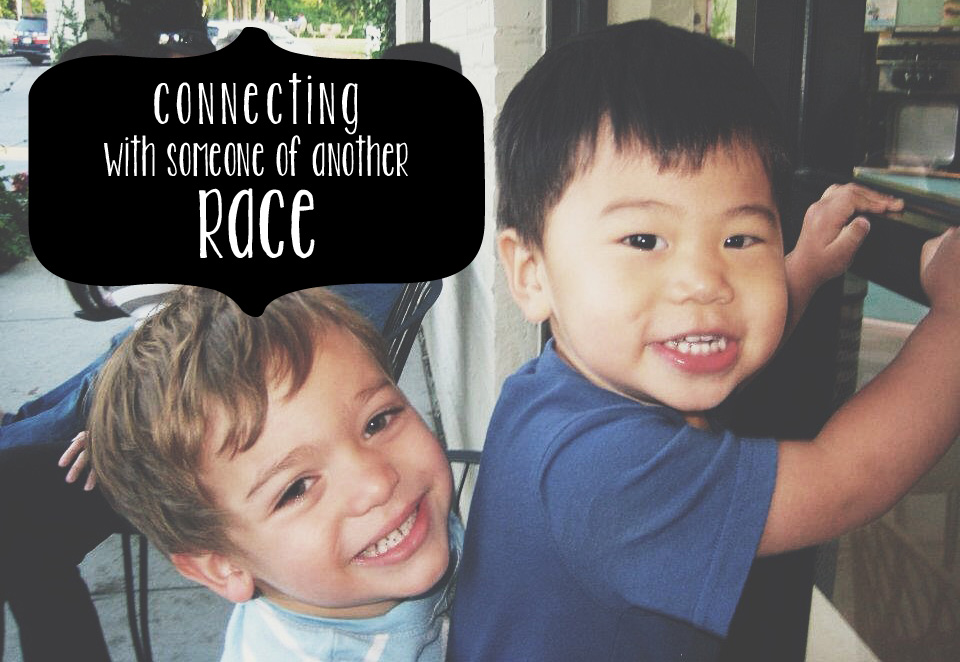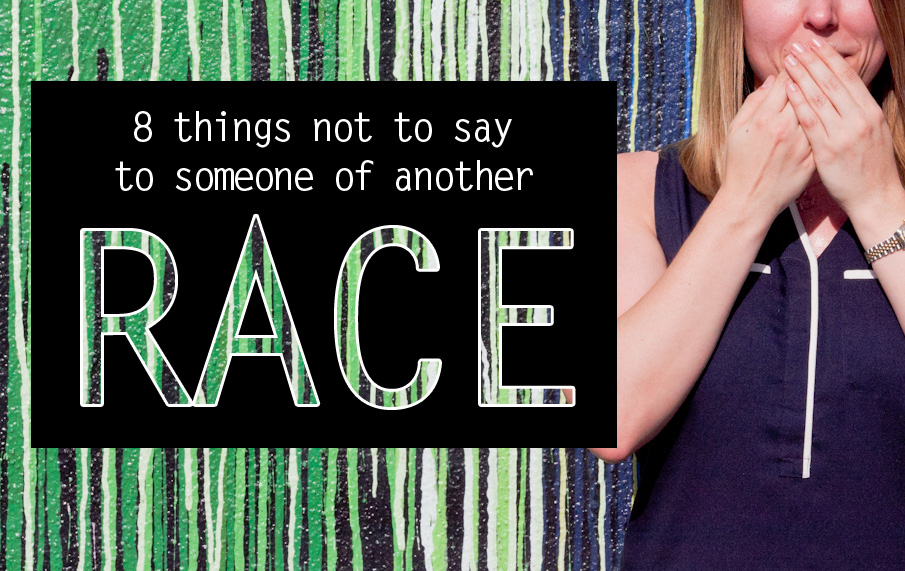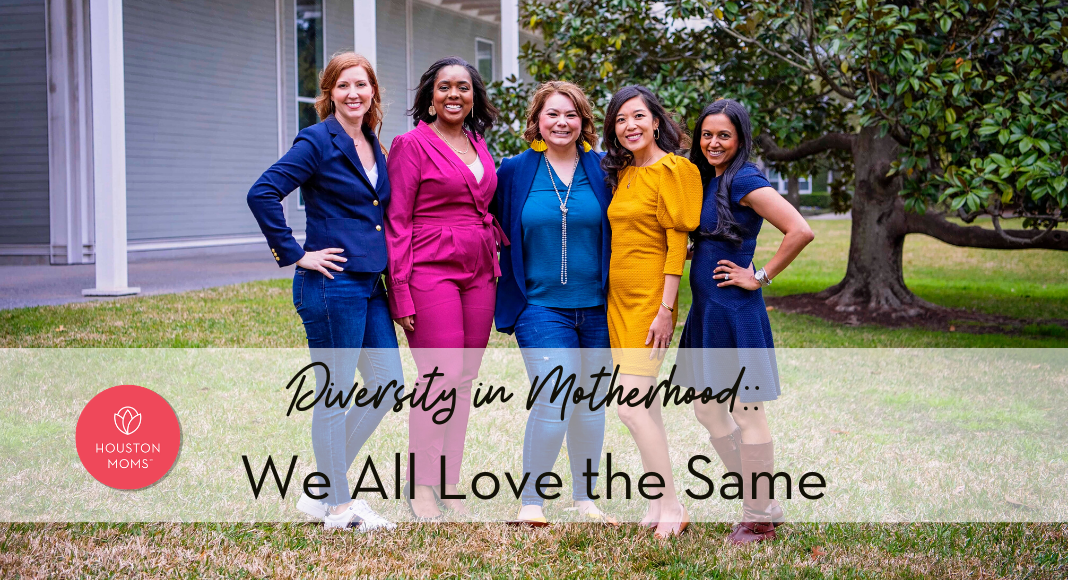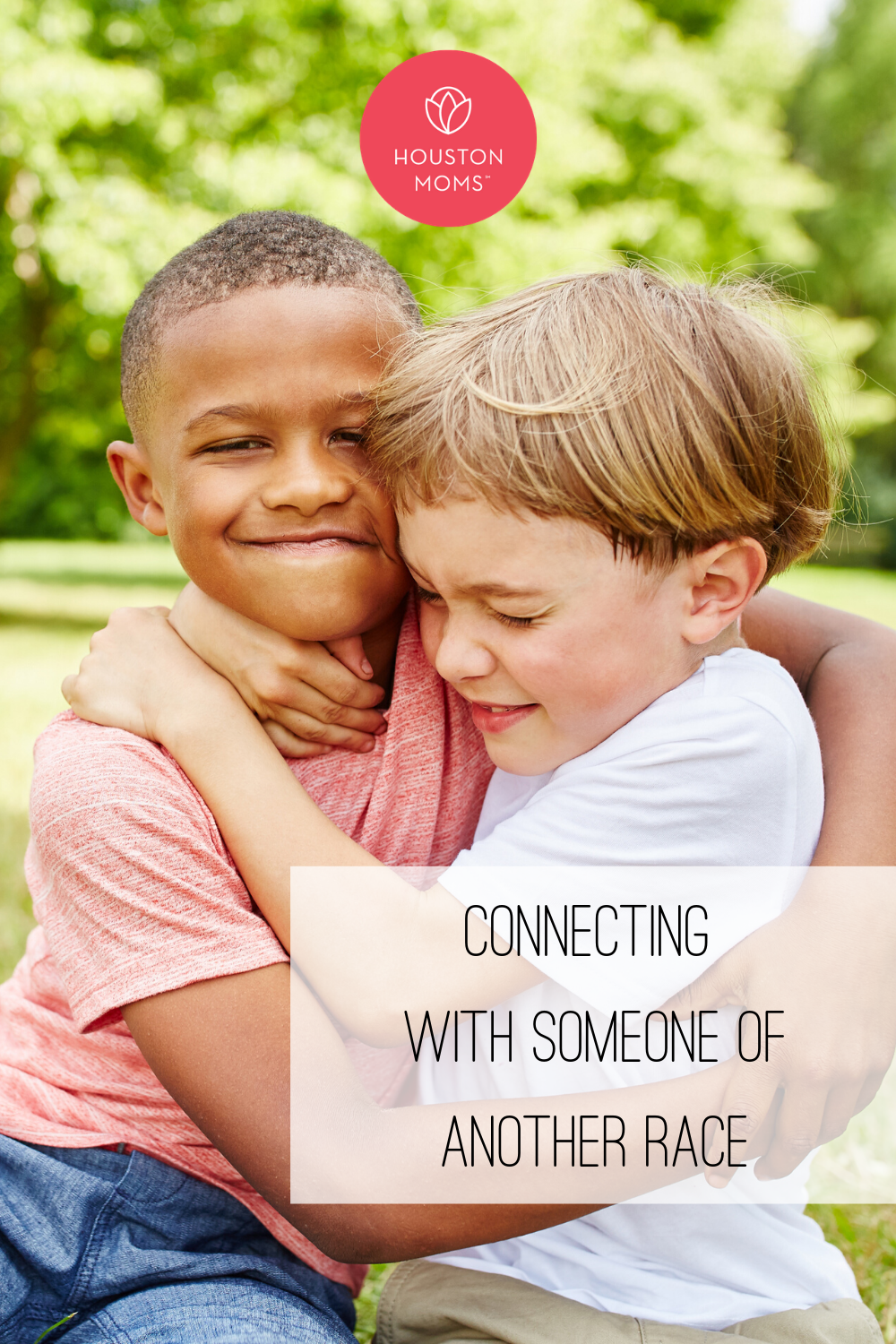
This is not another piece on the Internet that’s meant to shame you about race. Think of this as another iteration of articles you’ve already read by other moms about other difficult topics — what not to say to a SAHM, to someone struggling with infertility, to a parent of a child with special needs. Basically… how to avoid finding your foot in your mouth when you really meant well! These how-to guides aren’t meant to stifle conversation, rather, they are meant to facilitate a more open discussion. Think of me as a mom who wants to inspire small tweaks in order to support the bigger picture of better racial awareness and equality for the good of her children.
Sure, there have been great strides to embrace the differences of race. You can see many contemporary American cuisines incorporating ingredients from international cuisines. Corporations have employee networks that honor and respect diversity. However, all that progress can unwind at the personal, individual level. It unwinds when someone says something that seems so innocent, yet denies the legitimacy of my “American-ness”.
Growing up as a minority, it’s the conundrum of :: I’m proud of my heritage, yet I’m also proud of being an American… but I’m not like everyone else in either category! I am me. It’s important that we do not wipe individuals of their heritage. We need to celebrate diversity while recognizing that there is no “right” definition of an American. At the same time, we don’t know how far removed or how close someone is to their heritage based on the tone of their skin, the texture of their hair, and/or the shape of their eyes. We don’t know unless we ask. And in true American form, we like to be politically correct.
This is the school of life and today’s subject is diversity fluency. Here’s a grading scale.
| A+ | Differentiating ethnicities and cultures from race |
| A | Polishing the questions below |
| B | Asking any of the questions below as-is |
| C | Don’t ask, don’t tell |
It’s truly an art and not a science. The point is, if you’re comfortable with your grade, awesome. I’d rather you ask me one of the below questions as-is rather than ignoring something so important to me. But, if you truly want to connect with someone of another race, here’s some tips to help you do so.
This list was a compilation of comments that I have received or my cornucopia of friends {either American born or been-here-for-a-long time} have received as we’ve grown up in the States. It also includes comments I’ve made that often resulted in foot-in-mouth disease after unintentionally offending someone. While I offer my point of view as an Asian American, many of these common statements are applicable to other races as well.

8 things NOT to say to someone of another race…
{Rule of Thumb :: Think of how you would feel if someone were to turn these questions on you.}
1. “No, really, where are you frrroooooom?”
What’s the context?
I get this question after I tell someone that I’m from Houston. Then they repeat the question, and I tell them I was born “here” {the States}. Finally, they ask again, and I oblige by telling them my ethnicity.
Why can’t I say that?
There’s an underlying implication that I’m not from here. Yes, ultimately, my origins are of another country, but so are yours. So is almost everyone in the United States.
What else am I supposed to say?
“What’s your heritage?” or “What’s your ethnicity?”
2. “Your English is SO good.”
What’s the context?
Whenever this is said to me, it comes so far out of left field that I can’t retain where we were in the conversation. It’s kind of like someone just complimented me on breathing.
Why can’t I say that?
I scored higher on the verbal section of the SATs and the GMAT. I sound pretty American, right? Guess what… I am! Sure, English may not have been my first language, but it sure is my primary language now. And I didn’t particularly work hard at it. It happened via Sesame Street and public education.
What else am I supposed to say?
Just don’t say it. But if you must… Take a moment and compare my English to yours. After you determine that my English really is superior to the average American, say something like, “You really have a way with words.” … or something more general like that.
3. “You’re not like the others.”
What’s the context?
This can also sound like, “You don’t look {insert race},” or “You don’t sound {insert race}.”
Why can’t I say that?
This is a symptom of making a sweeping generalization that all people of a certain race are a certain way. It can also unintentionally alienate an individual from a part of their identity because it’s kind of like saying, “you’re not doing it right!” A knee jerk reaction to the above statement is, “What are the ‘others’ like?”
What else am I supposed to say?
Just don’t say it.
4. “Do you speak Indian/Asian/Mexican/African?”
What’s the context?
My police officer friend responds to calls when there’s a request for an “Asian” speaker. My Indian {sometimes Pakistani and Sri Lankan} friends are asked if they speak Indian. So on and so forth with my Hispanic and African friends too.
Why can’t I say that?
If I were to reverse this question, it would be, “Do you speak American?” There are often many languages associated with a geographical location. There are many languages spoken in India {Hindi, Urdu, Malayalam to name a few}. And not all Hispanics are Mexican. Spanish is the official language of Mexico. Same with Asia and Africa — they’re large continents with many countries and many languages.
What else am I supposed to say?
“Do you speak any other languages?”
5. “Hola. Nee how. Namaste. Konichiwa.”
What’s the context?
I usually get this when I’m walking down the street or at a get-together and someone approaches me by greeting me with the language they think I speak. This is usually nee-how which is hello in Chinese. Usually it’s followed by konichiwa which is a Japanese greeting. Sorry. I’m neither of those.
Why can’t I say that?
You can’t assume someone’s language by their appearance. Similar to question 4 above, the action lumps people of a certain look into one category. Asia is a big continent with many countries and many languages. Same with the South Asian and Middle Eastern parts of the world. And those who appear Hispanic could either be Spanish or Latin American — and some Latin Americans speak Portuguese and/or French.
What else am I supposed to say?
“Hello. How are you?”
6. “Your hair is crazy! Is it real? Can I touch it?”
What’s the context?
When I had long hair that that went down to my waist, I would get comments about whether my hair was real. I was lucky if someone asked before they stroked my locks. I know my African American friends have similar experiences, but on a more frequent basis.
Why can’t I say that?
Hair is a personal thing. It’s a part of your body. What a normal hair type is for me may be different from you. That does not give you permission to stroke it like a pony at the petting zoo. My blond friends have experienced this type of attention in different parts of the world and have admitted it’s not the most comfortable feeling to be gawked at.
What else am I supposed to say?
“Your hair looks great! I love it!”
7. “You look JUST like {famous person of color}.”
What’s the context?
This meant-to-be-compliment truly comes from a soft place in the communicator’s heart. I’ve been told I look JUST like Lucy Liu, Connie Chung, Ming-Na Wen, and even Mulan. My friends who are of different races have heard similar statements but for their associated race.
Why can’t I say that?
Thanks! …but I look nothing like her. Except maybe the hair… but our heritages are from different countries. It goes back to the point that Asia is a big continent in numbers 4 and 5.
What else am I supposed to say?
“Dannnnng! You look good! You look like a star!” …you know. the good stuff.
8. “I know how it is. My best friend’s cousin in elementary school is {insert minority group}.”
What’s the context?
Someone is usually is trying to relate with me by drawing a personal connection, no matter how many degrees separated.
Why can’t I say that?
It comes off as if my experience is discounted because do you really know how it is? You can’t understand how it is until it is you, yourself, have been treated a certain way because of the way you look… until the authenticity of your identity is tested.
What else am I supposed to say?
Expressing empathy does wonders. Something like this is effective, “I have heard family/friends mention that, and I can’t imagine what that’s like.”
Now, some of you who read this may think I’m being overly sensitive. I’m really not, though. This is the tip of the iceberg. Many people of color hear comments like this on a pretty regular basis and for their entire lives. In fact, my daughter had her first run-in with race when she was 6 months old. For me, I got used to it because I had to. I grew thicker skin because of it. I’m not asking for pity or reparations. I’m seeking change for my daughter and son. As parents, it’s up to us to mold our little humans into compassionate people who eliminate the harshness of racial generalizations. As my friend and mentor has told me, “Think big. Start small. Act fast.” Big picture = better racial awareness and equality. Start small = tweaks when connecting with someone of another race. Acting fast = now, especially since {1} we can’t let the racial tension in the media slow-down progress, and {2} Houston is one of the most diverse cities in the nation and we must keep up.

















